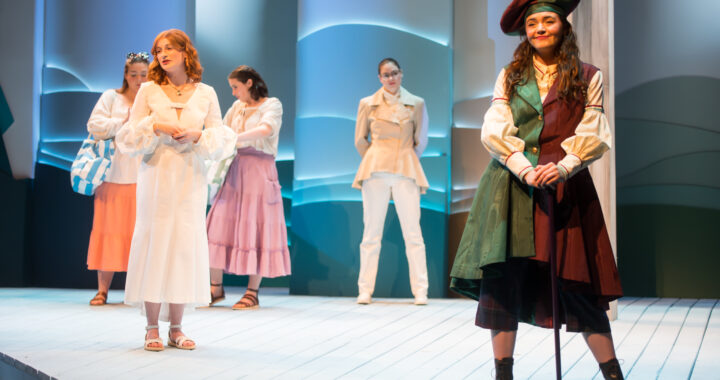BET star speaks at UMW
3 min readBy ANNIE KINNIBURGH
Jeff Johnson, the keynote speaker for the University of Mary Washington’s celebration of Black History Month, was half an hour late to his own speech. And he was not happy about it.
Johnson, who spoke in the Great Hall last Wednesday, Feb. 6, said that he had been running late since getting off a plane earlier that morning.
“I’ve been in six cities so far this week,” Johnson said. “And I will admit that I’m a little frustrated and annoyed right now.”
Johnson’s schedule is packed, even by a college student’s standards. He is a host and producer on the BET cable network, a nationally syndicated radio commentator, and youth pastor at the Empowerment Temple African Methodist and Episcopal Church in Baltimore, Md.
He made his late arrival a metaphor for a discussion on the importance of cultural and racial identity to the young black community.
“So many of our young people are showing up late because they didn’t know how to get there in the first place,” Johnson said.
Johnson’s mission is to reach out to the young people, encouraging them to use their voices to affect social and political change.
He says that the youth in black communities are struggling with a crisis of identity. When their communities fail to help them understand their identities as individuals, these young people turn to outside sources and substandard role models.
“Young people are trying to answer some important questions about who they are and where they come from,” Johnson said. “But the images they’re looking to as role models are rappers and artists on BET who are even more confused than they are.”
Johnson says that Black History Month should help correct this problem by teaching young people to celebrate their own history. Instead, however, he feels that the “season of blackness” has become a way of reducing a rich history to a few significant events and people.
“There is very little discussion of black history outside of two periods: slavery and the civil rights movement,” Johnson said. “That’s not the sum of our history. What happens if we only view ourselves through our history in times of oppression?”
Johnson says the black community is overly reliant on the messages of spokespeople instead of coordinated efforts of a community. He cited Martin Luther King, Jr. as an example.
“To speak about King at this time of year is frustrating for me,” Johnson said. “We have allowed society to box him into the “I Have a Dream” speech, and we honor him with cups and mugs and catchphrases instead of following his example.”
Johnson feels that reliance on the messages of individuals only perpetuates the cult of celebrity that young people worship.
“Young African-Americans become more interested in leaving the community that built them up than in returning to that community to raise it up in return,” he said.
Despite all of the problems Johnson finds within Black History Month, he agrees that people should use the time to celebrate black heritage and create a brighter future.
“There is a serious void in leadership among young people—not just in the African-American community, but across the board,” he said. “That’s because people keep praying for the next Martin or Malcolm when we should be training them.”
Sophomore Christina Becker agreed with Johnson’s points about the importance of community in affecting change and in defining the individual.
“I found it really thought-provoking,” Becker said. “It made me realize how everyone has something to contribute—you can’t just change yourself. You have to change others too in order to make a difference.”











